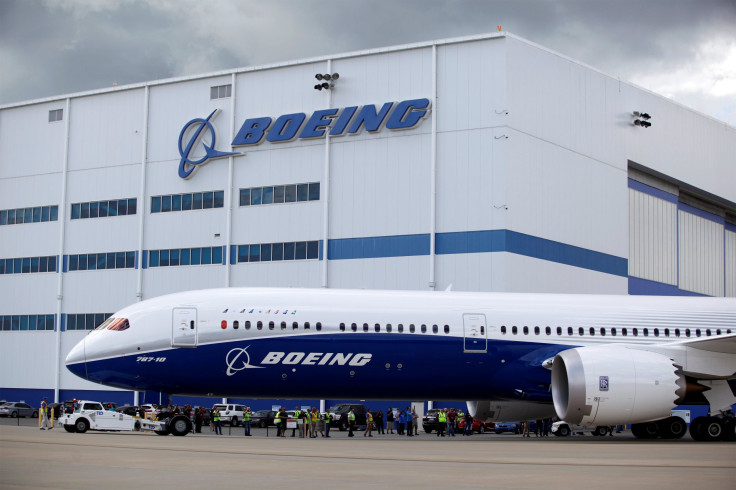Will Trump Allow Boeing To Sell Jets To Iran? President to Face Conflict Over $3 Billion Deal With Aseman Airlines

Aerospace giant Boeing, announced Tuesday the confirmation of a tentative agreement with Iran Aseman Airlines to sell 30 737 jetliners. The delivery of the aircrafts has been scheduled to commence from 2022. The $3 billion deal also came with an option of 30 more 737 MAX aircrafts, but at a later date.
In December 2016, Boeing agreed to a separate $16.6 billion deal for 80 passenger jets for Iran Air. Boeing's initiative to negotiate with Iranian companies was the first attempt to export American aircraft to the country in 40 years since Iranian King, Shah Mohammad Reza Pahlavi's era.
The recent deal puts the U.S. president’s policy of promoting manufacturing jobs in conflict with the vow to take a stronger stand on the Islamic Republic. Boeing claimed that the deal "creates or sustains" around 18,000 jobs in the U.S. It will be a test for Trump to decide, which policy to favor while deciding the sanction of the deal.
Read: Boeing 777-Size Drones Might Cut Airfreight Price In Half
"This deal presents Trump with the mother of all dilemmas," said Cliff Kupchan, chairman of the Eurasia Group, a political risk consultancy based in Washington. "It would create a lot of jobs — he’s all about that," Kupchan said, according to Bloomberg.
"But planes are inherently dual-use, can ferry troops around, and Trump is dug in on curbing Iranian influence in the region. It’s a big bet by Boeing, and the firm probably has an uphill fight on its hands," he added.
If the White House foils Boeing’s agreement, it also risks tilting the playing field in favor of Europe’s Airbus Group SE, said Richard Aboulafia, vice president of analysis at the Teal Group, an aviation research consultancy in Fairfax, Va. "Trump campaigned on getting tough with Iran," Aboulafia said, "But at the end of the day, these are manufacturing jobs. It’s really hard to say, ‘Yes, we are giving this work to the Europeans,'" he added.
The negotiations were authorized by the U.S. government and founded on the 2015 nuclear agreement. The agreement relaxed many economic authorizations against Iran in return for the country’s confirmable pledge that its nuclear activities will only be peaceful in nature, according to New York Times.
Even though it is not cited in the Boeing announcement but payment is still a significant hurdle for both sides. Iran cannot use the American banking system under the regulations that still apply to the country. So, transactions have to be carried out overseas and in currencies other than dollar.
American critics of Iran in Congress and elsewhere have repeatedly objected to Boeing’s plans to sell new aircraft to Iran, arguing that at least some of the planes could be diverted for illicit military use.
"On the same day Bashar al-Assad’s air force dropped chemical weapons onto children, an American company announced its intent to sell airplanes to Assad’s patrons in Tehran," Peter Roskam of Illinois, an influential Republican who has long opposed Boeing’s intentions in Iran, told the Times. But Boeing assured that necessary safeguards are in place to prevent any misuse of the aircrafts and that the agreement was signed in accordance with the nuclear agreement of 2015.
© Copyright IBTimes 2025. All rights reserved.






















